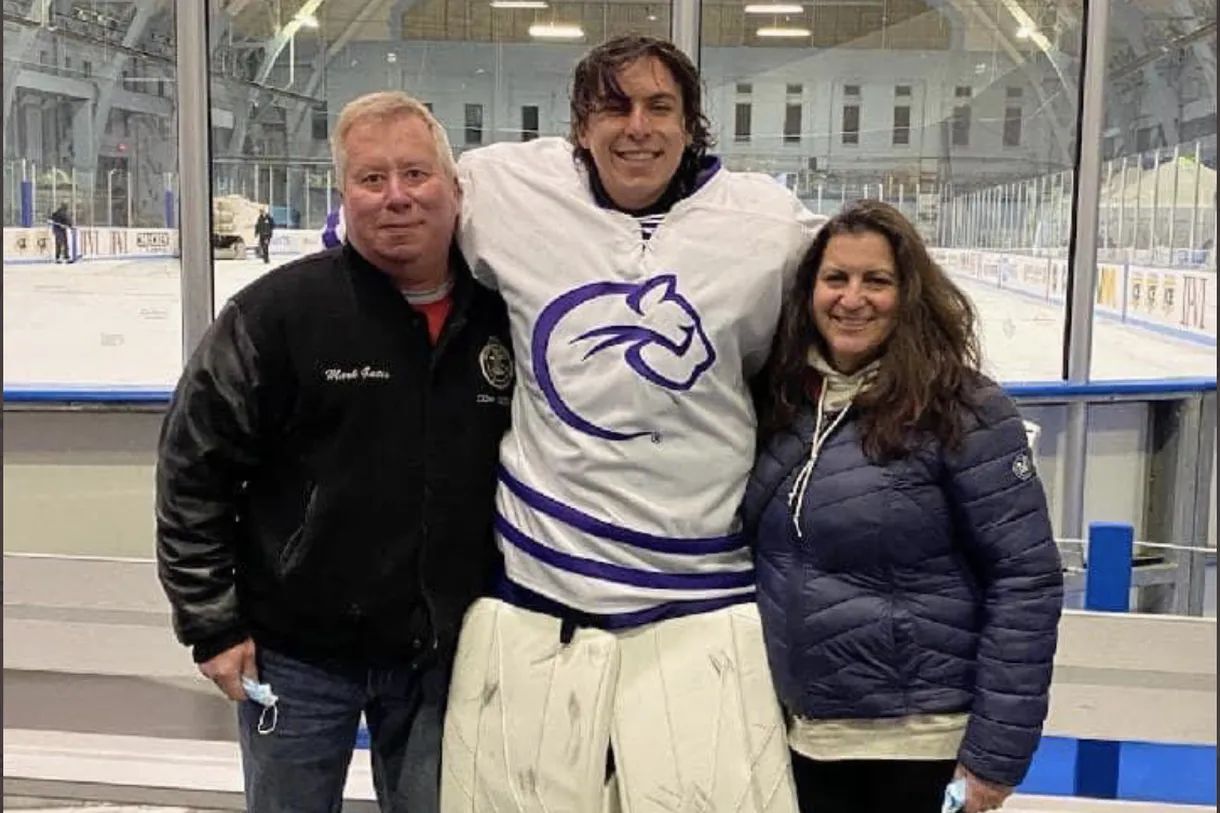For most of Carson Gates’ life, he thought hockey was for straight people. That discouraging message was reinforced across the NHL this season, with multiple players and teams refusing to wear rainbow warmups during Pride Nights.
With that in mind, Gates was fearful about coming out as queer. He plays on the men’s hockey team at Chatham University in Pittsburgh, and wasn’t sure how his teammates would handle the news.
As it turns out, they’ve embraced him with open arms. Gates publicly came out Friday, publishing an essay appropriately titled, “I am queer and I belong in hockey.”
Three days later, he says the response has been incredible.
Get off the sidelines and into the game
Our weekly newsletter is packed with everything from locker room chatter to pressing LGBTQ sports issues.
“I have received countless texts from friends and family who showed their support, and even more strangers online did the same,” he told Outsports. “My teammates at Chatham really rallied around me after the story as well, which made me feel like I 100 percent belonged. I am so lucky to have a such great support system around me, and I hope someone who read my story knows that they are not alone.”
if you could please give my story a read here that would mean the world to me. this isn’t something i normally talk about, but with everything going on i felt it was only right that i share some of my experiences https://t.co/8Susw7Yqeb
— Carson Gates (@Gatesy35) April 14, 2023
The power of visibility shows young LGBTQ athletes it’s possible to thrive as their true selves, despite the prevalence of casual homophobia and other anti-gay attitudes in some corners of the sports world. Gates writes about how hearing “faggot” on the ice was a common occurrence growing up, and that “calling someone gay was as much a part of youth hockey as parents yelling about a missed penalty.”
Those are just some of the reasons why Pride Nights are so important. They tell LGBTQ people they belong in historically exclusionary spaces.
But that message is undercut when players don’t buy in, and teams capitulate to their homophobia.
Some players, including Philadelphia Flyers defenseman Ivan Provorov and San Jose Sharks goaltender James Reimer, used religion as an excuse to opt out of championing Pride.
Other teams, such as the New York Rangers, Chicago Blackhawks and Minnesota Wild, opted to abandon their Pride uniforms altogether.
Anybody who doubts the importance of Pride Nights should read Gates’ essay. He explains how a small gesture of support, such as wearing a rainbow-colored warmup jersey, can go a long way towards helping LGBTQ players feel comfortable.
Conversely, when players don’t signal support for Pride, the opposite happens.
“A locker room can’t remain a safe place for all players if a closeted person sees their teammates opt out of a Pride Night at the NHL level,” Gates writes. “Even in my own life, I find it really difficult for me to see how I could continue to give it my all on and off the ice for someone who doesn’t accept me for who I am.”
Gates is thankful that he doesn’t have to personally experience those doubts. He knows where his teammates stand: fully behind him.
“I am so thankful for my teammates at Chatham for appreciating who I am as a person and letting my hard work speak for who I am,” he writes. “I do acknowledge that this is probably most of their first times playing with someone who is openly out. I am proud of their own growth in being more mindful in the language they use, and why they use it.”
As it turns out, the kids are alright. Last month, Luke Prokop’s teammates put rainbow tape on their sticks to support him during a fan-thrown Pride Night.
Nobody on Prokop’s WHL team is older than 20, by the way.
Those actions show that, yes, LGBTQ people belong in hockey. Gates is proud to show that’s the case, and hopefully inspire others along the way.








































